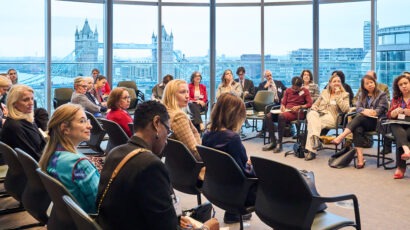
Embedding climate actions in day-to-day operations
The ever-louder warnings of climate scientists of impending disaster are landing in a political world somewhat divided on the methods and pace to address the climate crisis. The EU and the UK seem to be forging ahead, Biden’s IRA will create momentum in the USA, and soon-to-apply global reporting standards will play a big part in corralling laggards.
The cost of transition is increasingly taking a larger share of voice, so to stay the course we need to create alignment with areas that compel change – profit, risk reduction, customers, public opinion, finance and regulation.
The alignment of profit with the actions needed to reduce carbon footprint is a big motivator: the high cost of energy caused by the Ukraine war has forced companies to consider how and where they consume energy and to introduce efficiency measures. One company I am involved with can reduce consumption by 20% by deploying smart systems, big data analysis and monitoring alarms. It is growing fast because of the high cost of energy and the savings it can generate for its clients. Its time has come simply because energy is expensive. Cost saving equals carbon reduction.
Motivators
Risk reduction is a less immediate but also a good motivator – would you invest in new facilities that could be impacted by forecast sea level rises, or regular wildfires? You might if your market were right there and your returns were fast, but you are now taking these climate risks into account in investment appraisals. But what about risk reduction today? Do we understand climate risk in our supply chain today? Remember a few years ago the impact of floods in northern Thailand on chip supply? Covid and Ukraine have reminded us of the importance of understanding key dependencies and single points of failure in our supply chains.
Customer loyalty and public opinion are also important motivators – companies looking to reduce climate impacts will only introduce new products or services that are less carbon intensive, or they run the risk of customer loss and a lambasting in the court of public opinion. Is our product and service design now taking climate impacts into account? Can we go further and make it a differentiator?
Pressure and regulation
Regulation in the form of listing rules, the availability and cost of lending influenced by scenario planning of banking regulators, and company reporting standards also play important roles – and are changing fast. The issue is one of national priority and unfair competitive advantage (or disadvantage) in an increasingly fragmented world.
Investor pressure, insurance, litigation: if the matters above are not compelling enough, there is a real personal impact on directors from investor pressure, a fast-moving insurance landscape and the threat of litigation for unsubstantiated net zero claims without a worked-up and credible transition plan. Motivators indeed!
So what should directors be doing?
If you are reading this, you are a member of Chapter Zero (or if not you can register here), informing yourself, and asking the right questions.
The biggest challenge once a carbon reduction strategy is decided is the operationalisation and embedding of these matters into existing governance structures, decision making and data throughout an organisation. The good news is that this whole area is professionalising and developing fast, with lots of training and professional support available, and technology solutions advancing rapidly.
One question we need to consider further is whether the profit motive will stop us sharing what works with our fellow members of Chapter Zero, or whether we will share knowledge in our collective interest. Let’s hope that “green-hushing” where companies are scared by the risk of being ridiculed as virtue-signallers does not become the norm. We urgently need to share successes, and Chapter Zero and industry bodies such as techUK have an important role to play in championing what works.
Guest authors
Our guest authors write in a personal capacity and the views expressed within may not reflect those of Chapter Zero.




